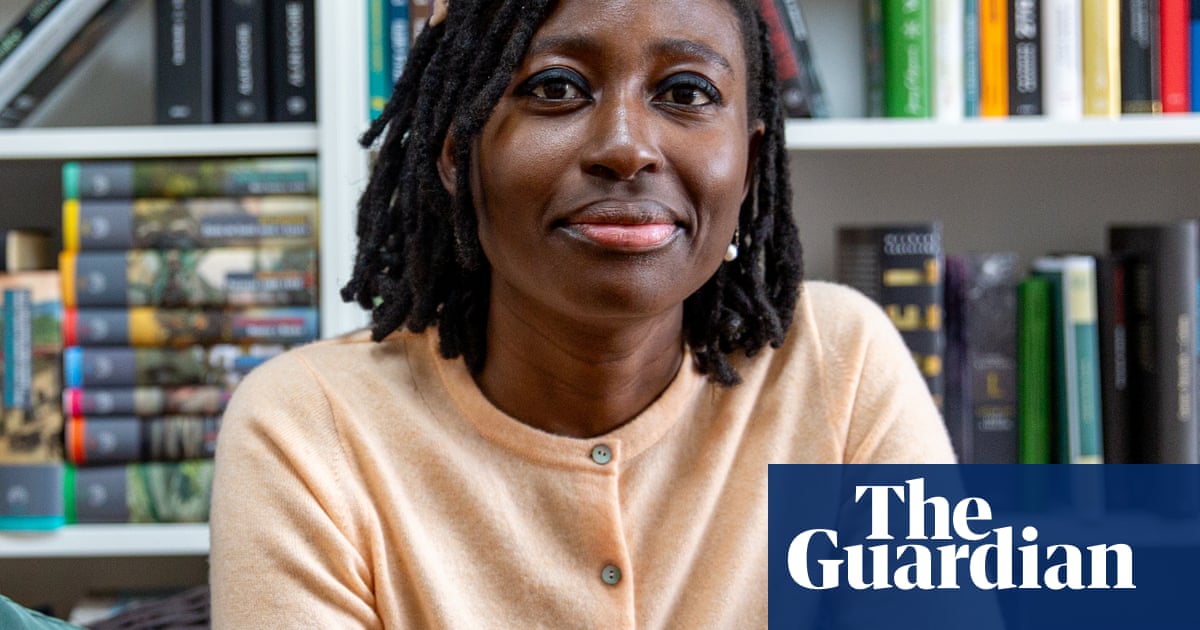How many selves do we house? Thousands, thought Virginia Woolf. Are they one and the same? Not according to the Portuguese author Fernando Pessoa, whose alter egos – writers just like him – came with their own distinct names, biographies, mindsets and hot takes on the world. Born of him yet operating independently, he called them “heteronyms”. Are our selves on the same team? You wish, Helen Oyeyemi might say, holding up her new novel, which features a protagonist split seven ways, one self for each day of the week, and no two ever in full agreement.
Oyeyemi made her debut in 2005 withThe Icarus Girl,the story of eight-year-old Jessamy, troubled and imaginative daughter of a Nigerian mother and British father, whose mysterious playmate, a girl named TillyTilly, is possibly her own destructive alter ego. A New New Me may at first glance seem like a thematic cousin; tonally, however, it belongs with Oyeyemi’s more recent works: playful, self-aware tales that revel in the hijinks of storytelling.
The action, set over a week, takes place in Prague, where Oyeyemi has lived since 2013. Unlike her 2024 novel,Parasol Against the Axe, it doesn’t feature narration by the storied city itself, but by the seven versions of 40-year-old Polish-born Kinga Sikora, AKA Kingas A-G. Each seemingly pursuing an agenda unbeknown to the others, they take turns steering their shared existence, conferring through a communal notebook. How has this come to be? Well, OG Kinga bailed on them, after leaving them in charge for what was only meant to be a temporary arrangement. It’s now 2024, more than a decade since anyone last saw her.
What’s the book about? As ever with Oyeyemi, it’s hard to say, and perhaps entirely beside the point. At times you get the sense its author has happily surrendered control of her material, letting it run whichever way it pleases, trusting the narrative to stumble upon meaning along the way. I’d describe this riddling, befuddling but always very funny novel as a fable about self-mythology: how we build ourselves up through the stories we tell, only to trip over them, or have to rewrite them later. A comedy about the masks we wear, if you will, as well as an existential mystery: is it ever possible to know which among our inner selves act in our favour and which do not? Oh, and there’s a man tied up in the Kingas’ apartment. Who is he? How did he get there? Which of the Kingas might have taken him in, and why? So, then, a mystery both existentialandliteral.
The first Kinga we meet is Monday Kinga, Kinga-A, “squad leader” and tone-setter for the week. A matchmaker facilitating “partnerships” for employees at a bank, she’s convinced she knows what is best for everyone, and comes off as overbearing and self-centred. Her biggest offence? According to Kinga-B, quarantining in France with their brother Benek for three full weeks during lockdown without consulting them (“She ripped our conscious hours away first and apologised afterwards”). Kinga-A claims not to know the tied-up man, accuses Kinga-G of secret Sunday church visits, and chastises everyone for their lifestyle choices. She also thinks there’s one restless Kinga among them who might bring about their downfall.
Done with Kinga-A’s condescension and main-character delusions (“As far as she’s concerned, we’re Kinga-A and Her Backing Dancers”), Kinga-B has decided to strike – no going to work, no laundry – and is rallying the rest of the Kingas to do the same on their own respective days. The rest of the week, courtesy of Kingas C to G, unfolds in a thicket of delightfully random stories and encounters, laced with clues and red herrings. Egos collide, old wounds break open, the lies and recriminations pile up, and mutual suspicion keeps at bay any semblance of an answer as to the enigma of the man in the house. Along the way, we learn that Kinga-C has secretly cosied up with him, that OG Kinga might be wanting to make a full-time comeback, and that the seven Kingas may have been suppressing her messages as well as jazzing up “the actual course of events with things that didn’t happen”. We also discover that their psychotherapist has permanently cut off contact.
The denouement, when it finally comes, is so gloriously absurd, you can’t help but salute Oyeyemi’s knack for artful nonsense. She is a gleefully unapologetic trickster; whether you adore this novel or chuck it across the room may come down to how much mischief for the sake of mischief you can handle. My bet is you’ll finish it, as I did, feeling bemused but also perversely entertained, and grateful for the ride.
A New New Me by Helen Oyeyemi is published by Faber (£16.99). To support the Guardian, order your copy atguardianbookshop.com. Delivery charges may apply.
